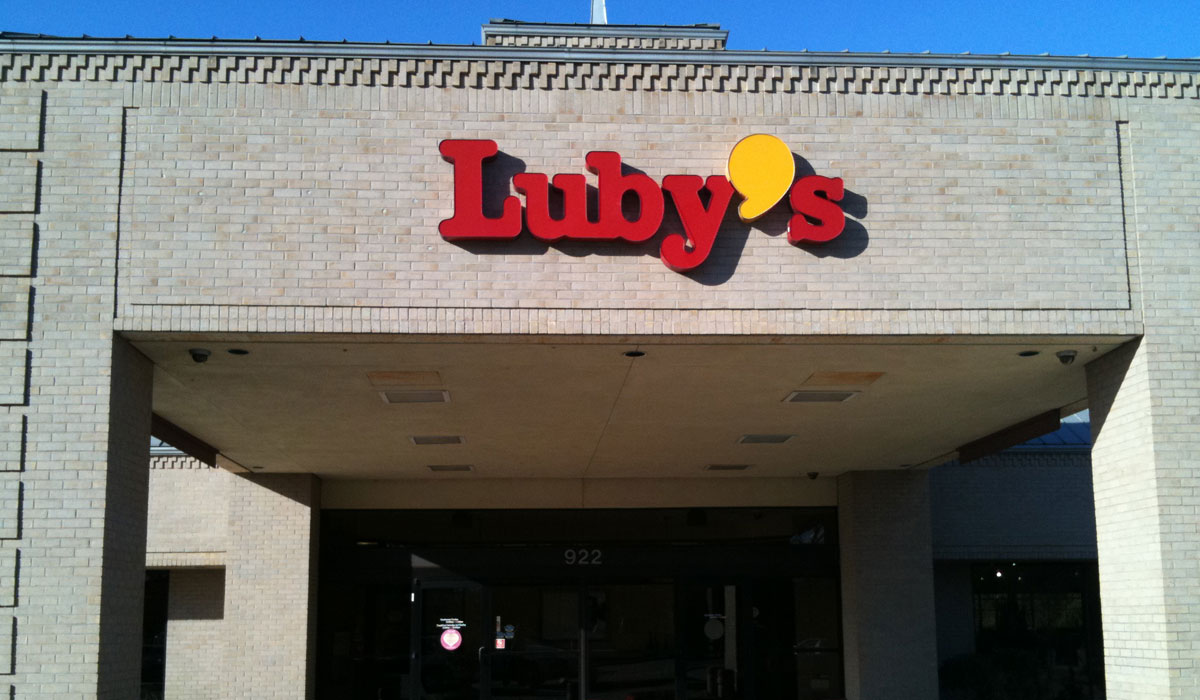Luby’s, Inc., the parent company of Luby’s Cafeteria, Fuddruckers, and Cheeseburger in Paradise, plans to close more restaurants as “the current competitive restaurant environment,” challenges its brands, president and CEO Chris Pappas said during a July 16 conference call.
Luby’s previously announced it would sell 14 properties, and expected to generate $25 million in proceeds. One store has already been sold, while two more are under contract, and there are offers on additional properties. The company would not comment on the exact amount of closures added with the revised plan, saying only: “At this juncture, it is necessary for us to critically evaluate again each of our locations to determine which are best positioned for future investment and growth.”
“The challenge of rising costs, flattish-to-down sales, and a sustained debt balance are restricting the company’s overall financial performance,” Pappas added. “… Within our current restaurant portfolio, there are number of units not achieving the necessary financial success due to any number of factors—market changes, residential and population shifts, overbuilt areas, et cetera.”
Luby’s, founded in San Antonio in 1947 and led by the Pappas brothers since 2001, runs 167 total stores: Luby’s Cafeterias (88), Fuddruckers (71), and Cheeseburger in Paradise (eight). Total sales were $86 million in the third quarter, a decrease of 3.1 percent. Blended same-store sales declined 0.9 percent. The company reported a loss from continuing operations of $14.1 million compared to $0.4 million in the year-ago period.
“We are committed to these property sales,” Pappas said of the 14 previously announced closures, “and plan to accelerate and expand upon this asset sales program with up to an additional $20 million in asset sales; the proceeds from this program will be used to reduce our debt. As we execute on this expanded asset sales program, we are also pursuing a refinancing of our debt under a new credit facility. We have engaged Cowen to assist us in this refinancing effort. We believe positioning our company to have lower debt, improved same-store sales, and a lower overall cost structure will enhance our financial performance as we move forward.”
Luby’s owns many of its restaurant properties. So when it closes stores it recovers the value of the property through a sales transaction, giving it an advantage over brands that lease locations. Pappas said the company would use the sale of units to pay down debt and continue focus on “superior store level execution for service, food, and facilities.”
“As we streamline by closing underperforming locations, we will be able to concentrate all of our energies on rebuilding and elevating operations and guest experiences at the remaining stores for the future,” chief operating officer Peter Tropoli said in the call.
Generating guest traffic was a challenge across the board.
Luby’s saw its guest traffic fall 6.6 percent, year-over-year, and Fuddruckers’ traffic declined 9.6 percent.
“Traffic, along with price increases, must occur in order to meaningfully improve—having a meaningful improvement in our results,” chief financial officer Scott Gray added in the call.
Same-store sales lifted 2.4 percent at Luby’s in Q3, year-over-year. They declined 5.8 percent at Fuddruckers, 3.3 percent at combo locations, 11.7 percent at Cheeseburger in Paradise. The average spend per guest was up 9.7 percent at Luby’s and 4.2 percent at Fuddruckers.
“The overall current restaurant environment is oversaturated in markets and we have seen this cycle before,” Pappas said. “Currently, we’re experiencing the restaurant industry going through a streamlining process with the closure of restaurants in many markets. We are certainly not immune to this as we’ve just mentioned and we’re going through the same process. Once we’ve completed these actions related to reducing and refinancing our debt and streamlining our operations, the company will be positioned to improve our financial results.”












